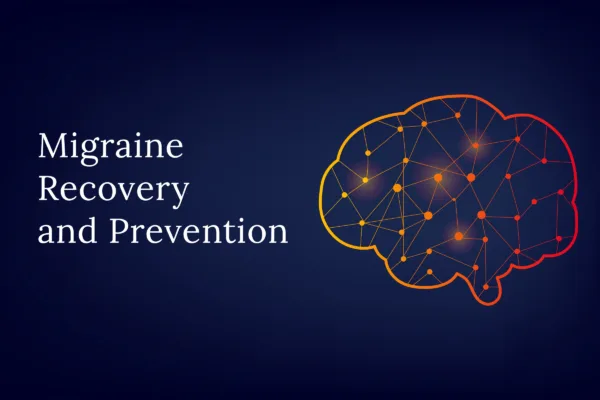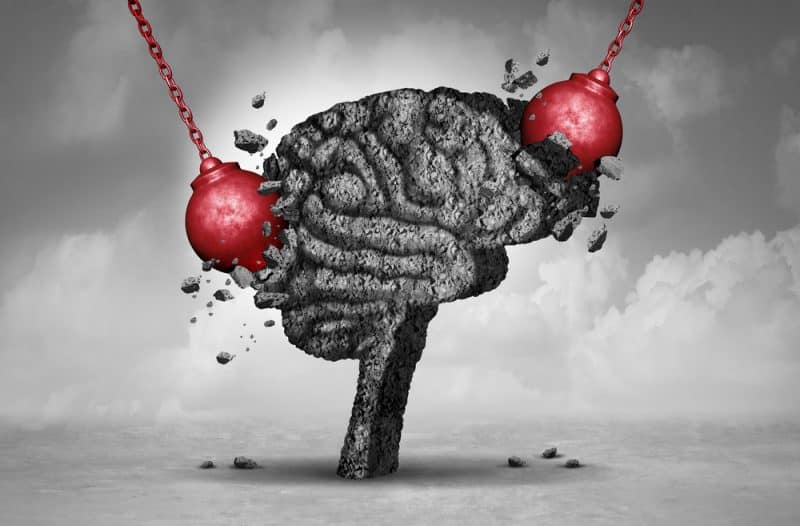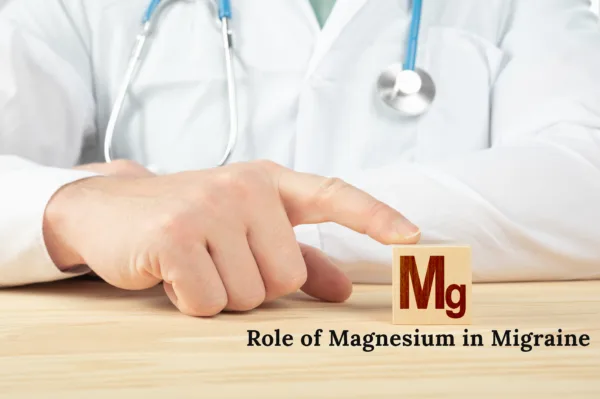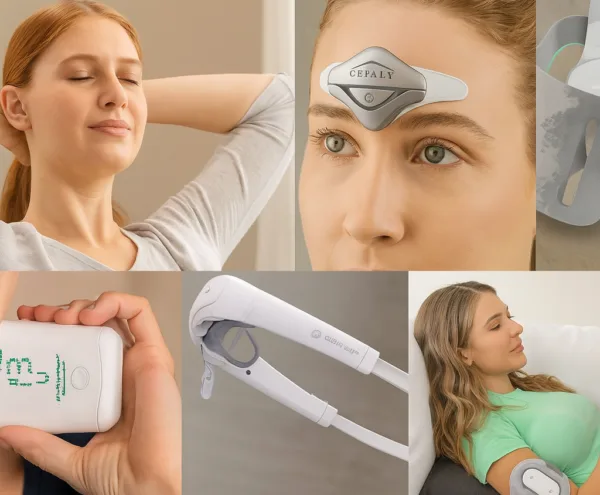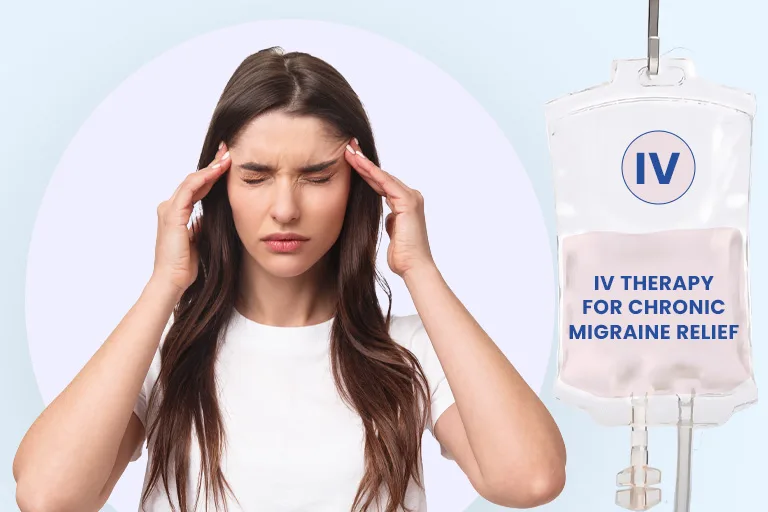What is a Vestibular Migraine?
Vestibular migraine is a type of migraine that affects one’s sense of balance. During a vestibular migraine attack, you may feel dizzy and as if you are moving or even falling when, in fact, you are staying still. This sensation is called vertigo, and it can happen at any time during the migraine attack. Moreover, a vestibular migraine may also involve symptoms such as sound and light sensitivity. However, it does not always involve headaches.
The word vestibular describes the inner ear and the body’s equilibrium systems, linked to vertigo, the sensation of moving, dizziness, or spinning while staying still. Vestibular migraine is the second-most common cause of vertigo in adults. This type of migraine can cause several debilitating symptoms, such as severe headache pain, and can strike suddenly, lasting for hours or even days.
Moreover, vestibular migraine can have a significant negative impact on one’s quality of life, often requiring specialized treatment. You can learn here about different types of migraines and how they differ from each other.
Symptoms of Vestibular Migraine
If you suspect that you have vestibular migraine, it is essential to consult a healthcare practitioner to receive a proper diagnosis and treatment. The main signs and symptoms of vestibular migraine include the following:
- Vertigo and dizziness
- Sensitivity to light and sound
- Nausea and vomiting
- Balance disturbances and instability
- Motion sensitivity
- Visual disturbances, also known as migraine aura
Take our Chronic Migraine Quiz
It could help you choose an appropriate course of treatment for your chronic migraines.
What Causes Vestibular Migraines? Triggers and Risk Factors Explained
Vestibular migraines are a complex neurological condition influenced by a combination of genetic, environmental, and lifestyle factors. While the exact cause remains unclear, researchers believe that abnormal communication between neurons in the brain, particularly in areas responsible for balance and sensory processing, plays a significant role. Let’s delve deeper into the known causes, common triggers, and risk factors.
The Neurological Basis of Vestibular Migraines
Vestibular migraines occur when the brain’s sensory pathways, which regulate balance and spatial awareness, become overstimulated. This overstimulation may lead to the characteristic symptoms of vertigo, dizziness, and motion sensitivity. Miscommunication between the brain’s vestibular system (responsible for balance) and pain pathways can result in the unique symptoms seen in vestibular migraines, even in the absence of a headache.
Risk Factors for Developing Vestibular Migraines
While anyone can develop vestibular migraines, certain factors may increase your risk:
- Genetics : A family history of migraines or vestibular disorders significantly increases your likelihood of experiencing vestibular migraines. If close relatives suffer from migraines, you may inherit a predisposition to the condition.
- Gender : Women are three times more likely than men to experience vestibular migraines, largely due to hormonal influences.
- Age : Vestibular migraines can start at any age, but they are most commonly diagnosed in people between 20 and 50 years old.
- Coexisting Conditions: Certain medical conditions are linked to an increased risk of vestibular migraines, including:
- Ménière’s disease
- Chronic migraines
- Anxiety disorders
- Vestibular disorders (e.g., Benign Paroxysmal Positional Vertigo)
- Lifestyle Factors
High levels of stress, irregular meal patterns, or sedentary lifestyles can contribute to more frequent attacks. Making lifestyle changes to manage these factors can reduce the severity of symptoms.
How to Prevent Vestibular Migraines
At Headache, Migraine & Concussion Centre, we specialize in integrative treatments for vestibular migraines. Our experienced team offers personalized treatment plans using proven therapies, including:
BOTOX® Injection for Chronic Migraine – this is a prescription medication (botulinum neurotoxin type A) that is injected into muscles and used to prevent migraines in adults.
Nerve Block Therapy for Immediate Relief – this treatment involves injection of anesthetic medication near the occipital nerve to reduce pain and inflammation from migraine headaches.
Acupuncture for Migraine and Vertigo Relief – this natural treatment option is effective for reducing vertigo, managing pain, and preventing migraines. Explore our full range of migraine treatments here.
Lifestyle Adjustments for Preventing Vestibular Migraines
In addition to professional treatment, lifestyle changes can significantly reduce the frequency and intensity of vestibular migraines:
- Track triggers: Keep a migraine diary to identify patterns.
- Stay hydrated: Dehydration is a common trigger.
- Get adequate sleep: Aim for consistent, restful sleep.
- Manage stress: Incorporate stress-reducing techniques like meditation or yoga.
- Manage stress: Incorporate stress-reducing techniques like meditation or yoga.
For more tips, visit our guide to managing migraines naturally.
Keeping a migraine diary and identifying your unique migraine triggers, such as food triggers, can help to avoid migraine-related vertigo.
In addition, getting enough sleep, staying hydrated, as well as avoiding stress and consuming alcohol can also go a long way when it comes to vestibular migraine prevention.
When to Seek Medical Advice
If you experience frequent or severe vestibular migraines, it’s important to consult a healthcare professional. They can help rule out other conditions, provide a definitive diagnosis, and recommend appropriate treatments, which may include medications, lifestyle modifications, or alternative therapies.
By understanding the causes, triggers, and risk factors of vestibular migraines, you can take meaningful steps toward prevention and effective treatment.
At the HMC Centre, our specialists work with patients to develop customized plans that address these triggers and provide lasting relief. Schedule your consultation today to begin your journey to better health.
Frequently Asked Questions (FAQs)
How long do vestibular migraines last?
Vestibular migraines can last anywhere from a few minutes to several hours. In some cases, symptoms such as dizziness and vertigo may persist for days. If you experience prolonged or frequent episodes, consult a specialist for proper diagnosis and treatment options.
Are vestibular migraines hereditary?
Yes, research suggests that vestibular migraines have a genetic component. They often run in families, although environmental triggers like stress, lack of sleep, or certain foods can also play a significant role.
What foods trigger vestibular migraines?
Common dietary triggers include caffeine, alcohol, aged cheeses, chocolate, and processed meats containing nitrates. Keeping a migraine diary can help identify your unique food triggers and minimize attacks.
Can vestibular migraines be cured?
While there is no definitive cure for vestibular migraines, they can be effectively managed with treatments such as BOTOX®, nerve blocks, acupuncture, and lifestyle adjustments. Early diagnosis and a personalized treatment plan can significantly improve quality of life.
Is acupuncture effective for treating vestibular migraines?
Yes, acupuncture has been shown to help reduce the severity and frequency of migraine symptoms, including vertigo and dizziness. It works by promoting blood flow, reducing inflammation, and balancing the nervous system.
What is the difference between vestibular migraines and Ménière’s disease?
While both conditions involve vertigo, Ménière’s disease also includes hearing loss and tinnitus (ringing in the ears), which are not typically seen in vestibular migraines. A healthcare provider can differentiate between the two through specialized testing.
Can stress cause vestibular migraines?
Yes, stress is a common trigger for vestibular migraines. Stress management techniques such as mindfulness, yoga, and regular exercise can help reduce the frequency of attacks.


